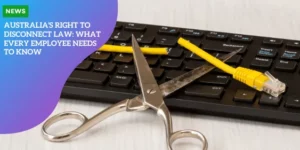Retrieving Unclaimed Money
Unclaimed money represents forgotten wealth waiting to be rediscovered by its rightful owners.
This phenomenon occurs when monetary funds from various sources remain unclaimed due to various circumstances, such as address changes, name alterations, or simply the beneficiaries forgetting about them.
Recovering this lost money can become an unexpected source of financial resources.
Identifying Potential Sources of Unclaimed Money
Before embarking on the journey to recover unclaimed money, it is essential to identify potential sources of this forgotten treasure.
Some common sources include inactive bank accounts, unclaimed life insurance policies, unpaid wages, stock dividends, and gambling winnings.
These resources may be awaiting claim in government records, financial institutions, or specific entities.
Inactive bank accounts often harbor funds that have been forgotten over time.
Banks may classify these accounts as dormant after a period of inactivity, and the funds within them may be turned over to state authorities if not claimed. Similarly, unclaimed life insurance policies are another significant source of forgotten money.
Policyholders may forget about old policies, or beneficiaries may not realize they are entitled to claim benefits.
Unpaid wages from former jobs can also contribute to unclaimed money.
Employees who leave a job might be owed wages or bonuses that remain unclaimed.
Additionally, stock dividends that have not been collected or redeemed can accumulate over time and become another source of unclaimed funds.
Gambling winnings, such as lottery prizes or casino jackpots, can also be unclaimed. Individuals who win large sums might not always come forward to collect their winnings within the specified time frame, leading to these funds becoming unclaimed.
Step-by-Step Guide to Unclaimed Money Recovery
Recovering unclaimed money can be a relatively straightforward process if you follow some essential steps.
Here is a step-by-step guide to assist you in this journey:
✅ Search Unclaimed Money Records: Start by conducting research in unclaimed money records. Many governments and financial agencies maintain online records that allow for specific name searches. These records often include funds from various sources such as bank accounts, insurance policies, and wages. Check these records to find out if there are funds under your name.
✅ Utilize Specialized Online Services: In addition to government records, there are specialized online services that aggregate information from various sources. These services compile data from multiple entities, making it easier to search for unclaimed money and providing a comprehensive view of potential sources of forgotten funds. Some well-known services offer free searches and can help you track down various types of unclaimed assets.
✅ Contact Financial Institutions: If you suspect you may have unclaimed money from old bank accounts, stocks, or other investments, contact the relevant financial institutions directly. Banks and investment firms typically have procedures in place for handling unclaimed assets. Provide them with your details and request information about any potential unclaimed funds.
✅ Check with Insurance Companies and Gambling Entities: For unclaimed life insurance policies, reach out to the respective insurance companies. Provide them with any information you have regarding old policies. Similarly, if you believe you might have unclaimed gambling winnings, contact the gambling entities or lottery organizations for assistance.
✅ Verify with Former Employers: Unclaimed wages from previous jobs can be another source of unclaimed money. Contact former employers, especially if you have left a job recently or in the past, to check for any outstanding payments or benefits that may be owed to you.
Proceed with the Claim
Upon finding unclaimed funds in your name, follow the provided instructions to initiate the claiming process.
This may involve filling out specific forms and submitting documents proving your identity and legitimate ownership.
You will typically need documents verifying your identity and legitimate ownership of the funds.
This may include official identification, proof of address, and documents related to the source of the money.
Ensure that all required fields on claim forms are accurately completed.
Track the Status of Your Claim
Keep track of the status of your claim. Some entities will provide a reference number that allows you to check the progress of your claim online or by phone.
Stay in touch with the relevant parties to ensure that your claim is processed smoothly and promptly.
Keep Your Information Updated
To prevent future loss of money, ensure that you keep your contact information updated with financial institutions, employers, and other entities.
Regularly review and update your details to ensure that you are notified about any pending funds or changes in your financial situation.
This proactive approach can help you stay informed about any potential claims and avoid missing out on future opportunities to recover unclaimed money.






